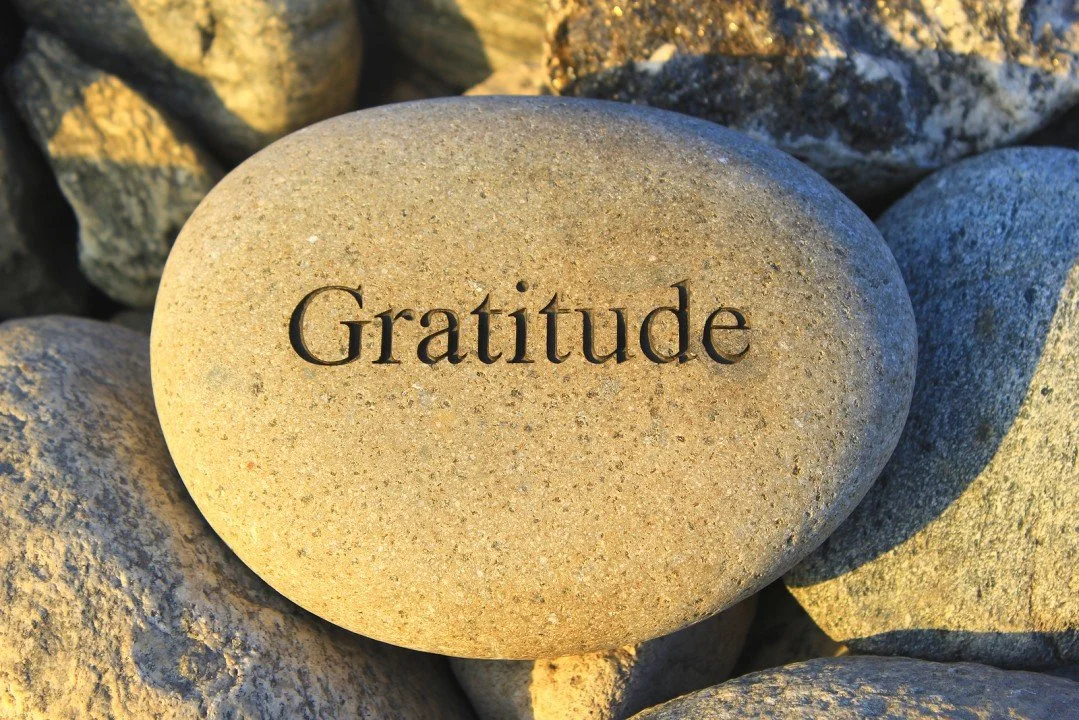Don’t Be Afraid to Be Grateful (Bot9 #372)
When I was a high school baseball player, I remember clearly having a lid on my performance. That lid was self-imposed and rooted in the fear of failure. I would play out all sorts of scenarios in my head before an at bat or taking the mound to pitch. As a result, I struggled to just focus on hitting the ball or throwing a pitch. There was one bit of advice that helped me overcome that fear on the field and achieve a new plane of performance. That advice came from my dad and all he said was, “Don’t be afraid to be great.”
It’s a counterintuitive statement - who in the world would be afraid of achieving and becoming great? Well, as it turns out, a lot of people. We, as human beings, have a tendency to hold ourselves back into what we call our “comfort zone” and live there. Very few overcome that desire, take good risks, and experience something more than typical. While I would hardly call anything I have done or accomplished as “ great,” I have attempted to push myself in ways that have stretched my abilities.
Those who have risked it all, attempted to climb the invisible ladder to achievement or pursue a life of mastery, discover that the world isn’t exactly supporting your effort. It will fight against you, cause doubt, and present setbacks in your pursuit. If you love the series of new dramatizations about the many of the dysfunctional start-ups of the past decade or so (i.e. - Super Pumped about Uber on Netflix), you can get a sense of this. Some of those even mention a valuable principle that says - “High tide raises all boats.”
When looking at the idea of a high tide in a Biblical context, this idea becomes really complicated. Water represents many things in the Bible, but one of those things is chaos (to learn more about this, I highly recommend the Bible Project Classroom course about Heaven and Earth). Large bodies of water like the ocean, a large lake or sea, would be viewed as chaotic and uncontrollable to the Biblical authors. Thus, if high tides raise all boats, when the tides go up, so does the chaos. Where greatness is possible, there is a higher propensity for chaotic events. As you do more and accomplish more, you’re going to experience more chaos.
Considering this, it becomes important to flip the bit of advice my dad gave me years ago from “Don’t be afraid to be great” to “Don’t be afraid to be grateful.” This is what the authors of the Psalms give us as a model, especially as things in life go chaotic. Pay attention to how the Psalms utilize thanks and gratitude no matter the circumstance.
We can also develop our gratitude through examining the ministry of Jesus as well. We have a couple of examples when the disciples faced the chaotic waters with Jesus - when they were in the boat with Jesus in a storm and when Peter steps out of the boat at Christ’s encouragement. In both situations, with chaos everywhere, we have the opportunity to make Jesus our focus instead of the difficulty. Both stories intentionally draw out the fact that Jesus has authority over the chaos. We can be grateful that we can focus on a stable figure who is never-changing instead of focusing on a constantly-changing environment.
When we step out to try new and challenging things, we must constantly come back to gratitude and thanks. Read a Psalm a day. Keep a gratitude journal. Meditate on all that you are grateful for in a given moment. We all exist in the middle of a much bigger story. As Brother David Steindl-Rast, a monk and interfaith scholar, says in his TED talk “Want to be happy? Be grateful”, when we choose gratitude, we begin to realize some very important things about life. We didn’t create the place we live or the air we breathe. When we become grateful on the most granular of levels, we can overcome so many of our fears.

